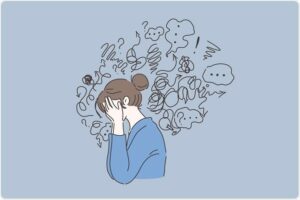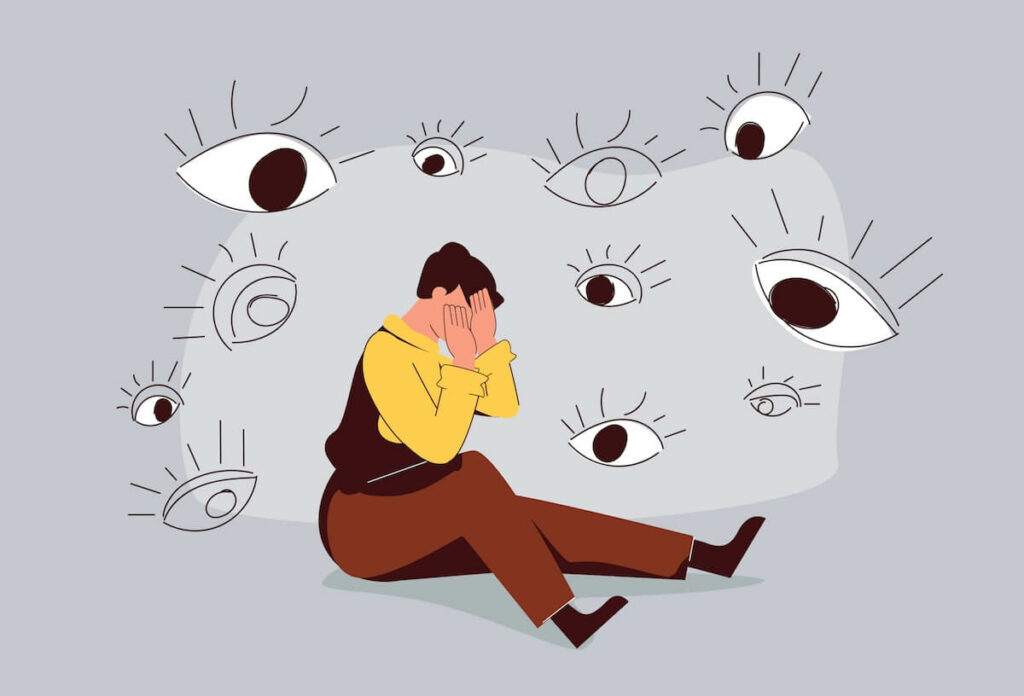Do you find yourself gripped by irrational fears or phobias that make everyday life a constant struggle? Phobias, whether they’re related to heights, spiders, public speaking, or any other triggers, can be paralyzing. Fortunately, phobia therapy is an effective way to conquer these fears and regain control of your life. In this article, we will explore the world of phobia therapy, the importance of seeking professional help, and how to find the right therapy near you.
Contents
Understanding Phobias

First, let’s clarify what phobias are. Phobias are intense, irrational fears of specific objects, situations, or activities. They can lead to debilitating anxiety and distress, often triggering avoidance behaviors.
Common phobias include social phobia (fear of social situations), agoraphobia (fear of public places), and specific phobias like arachnophobia (fear of spiders). These phobias can have a profound impact on a person’s quality of life.
Phobias are not just fleeting fears; they can significantly affect mental and emotional well-being. Left untreated, phobias can escalate into more severe anxiety disorders. The constant fear and avoidance associated with phobias can limit your personal and professional life, hindering opportunities for growth and happiness.
The Need for Professional Help
The need for professional help for phobias is crucial because phobias can significantly impact a person’s quality of life and well-being. Here are several reasons why seeking professional help for phobias is essential:
- Severity of Symptoms: Phobias can cause severe anxiety and distress. Individuals with phobias often experience panic attacks, sweating, trembling, and a strong desire to avoid the object or situation that triggers their fear. These symptoms can interfere with daily life and prevent individuals from participating in activities they enjoy.
- Quality of Life: Phobias can limit a person’s freedom and independence. For example, if someone has a fear of flying, it can restrict their ability to travel for work or leisure. Seeking professional help can help individuals overcome these limitations and regain control over their lives.
- Impact on Mental Health: Phobias can lead to other mental health issues such as depression and generalized anxiety disorder. The constant stress and worry associated with phobias can take a toll on an individual’s mental well-being. Professional help can address not only the phobia itself but also any related mental health concerns.
- Effective Treatment Options: Phobias are highly treatable. Evidence-based treatments such as cognitive-behavioral therapy (CBT) and exposure therapy are effective in helping individuals confront and manage their fears. A trained therapist can tailor these treatments to the specific phobia and needs of the individual.
- Safety Concerns: In some cases, phobias can lead to unsafe behaviors. For example, if someone has a fear of medical procedures (trypanophobia), they may avoid necessary medical treatments, putting their health at risk. Seeking professional help can ensure that individuals receive the care they need without compromising their well-being.
What is Phobia Therapy?

Phobia therapy, also known as specific phobia treatment or phobia counseling, is a form of psychotherapy designed to help individuals overcome their phobias. Phobias are intense and irrational fears of specific objects, situations, or activities, and phobia therapy aims to reduce the anxiety and distress associated with these fears.
Finding Phobia Therapy Near You
Phobia therapy is typically conducted by licensed mental health professionals, such as psychologists or licensed therapists, who have expertise in treating anxiety disorders and phobias.
Finding phobia therapy near you involves several steps to connect with qualified mental health professionals who specialize in treating phobias. Here’s a guide on how to find phobia therapy in your area:
- Consult Your Primary Care Physician: Start by discussing your concerns with your primary care doctor. They can provide a referral to a mental health specialist who can evaluate your condition and recommend appropriate treatment options, including phobia therapy.
- Check with Your Health Insurance: Contact your health insurance provider to understand your coverage for mental health services, including therapy. They can provide a list of in-network therapists or counselors, which can help reduce your out-of-pocket expenses.
- Search Online Directories: Many online directories and websites can help you find mental health professionals in your area.
- Ask for Recommendations: Seek recommendations from friends, family members, or colleagues who may have experience with therapy. Personal referrals can provide valuable insights into a therapist’s approach and effectiveness.
- Contact Local Mental Health Clinics: Local mental health clinics, community health centers, or university counseling centers often provide therapy services. They may have therapists who specialize in treating phobias or can refer you to specialists.
- Call Mental Health Hotlines: National or local mental health hotlines can provide information on available resources and may be able to refer you to therapists in your area.
- Visit Online Therapy Platforms: Some individuals prefer online therapy platforms that offer access to licensed therapists via video or chat. Platforms can connect you with therapists who specialize in treating phobias.
- Research Local Support Groups: Support groups for individuals with phobias may be organized by local mental health organizations or advocacy groups. While not a substitute for therapy, support groups can provide a sense of community and shared experiences.
Factors to Consider When Choosing a Therapist

Choosing a therapist is an important decision that can significantly impact the success of your therapy. To make an informed choice, consider the following factors when selecting a therapist:
- Credentials and Licensing: Ensure that the therapist is licensed to practice in your state or country. Licensing requirements vary by location, so verify that they meet the necessary qualifications. You can typically check a therapist’s licensing status through your state’s licensing board.
- Specialization and Expertise: Look for a therapist with experience and expertise in treating your specific concern. For example, if you’re seeking help for a phobia, find a therapist who specializes in anxiety disorders or phobia treatment.
- Therapeutic Approach: Different therapists use various therapeutic approaches (e.g., cognitive-behavioral therapy, psychodynamic therapy, mindfulness-based therapy). Research these approaches and discuss them with potential therapists to see which one aligns best with your preferences and needs.
- Experience: In addition to specialization, inquire about the therapist’s years of experience and the types of clients they have worked with. More experienced therapists may have a broader range of skills and insights.
- Compatibility: A strong therapeutic relationship is crucial for the success of therapy. Trust your intuition and consider whether you feel comfortable talking to the therapist. Personal rapport and a sense of connection are often indicative of a positive therapeutic experience.
- Communication Style: Pay attention to the therapist’s communication style during initial consultations or sessions. Do they listen actively, ask open-ended questions, and offer feedback in a way that resonates with you? Effective communication is vital in therapy.
- Cost and Insurance: Understand the therapist’s fees and whether they accept your insurance. Clarify any potential out-of-pocket costs and payment options before starting therapy.
- Location and Availability: Consider the therapist’s location and whether it’s convenient for you. Also, discuss their availability to ensure their schedule aligns with yours.
- Treatment Plan: Discuss the therapist’s proposed treatment plan, goals, and expected duration of therapy. Make sure you have a clear understanding of what to expect from the therapeutic process.
- Ethical Practices: Verify that the therapist adheres to professional ethical guidelines, such as confidentiality, informed consent, and boundaries. You should feel confident that your privacy and well-being are respected.
Cost of Phobia Therapy Nearby
The cost of phobia therapy can vary widely depending on several factors, including your location, the therapist’s credentials and experience, the type of therapy offered, and whether you have insurance coverage. Here are some factors to consider when estimating the cost of phobia therapy nearby:
- Therapist’s Fees: The fees charged by therapists can vary significantly. Highly experienced therapists or those in high-demand areas may charge higher rates.
- Type of Therapy: The type of therapy you choose may also impact the cost. For example, specialized therapies such as exposure therapy for phobias might require longer sessions or more frequent visits, which can affect the overall cost.
- Insurance Coverage: Check with your health insurance provider to see if they cover mental health services, including phobia therapy. If they do, inquire about any co-pays, deductibles, or out-of-pocket expenses you may be responsible for. Some plans may only cover therapy with in-network providers.
Conclusion
Phobias should not control your life. Seeking phobia therapy near you is a proactive step towards regaining control and living a life free from the grip of irrational fears. Remember that you’re not alone, and professional help is readily available to guide you on your path to recovery. If you are looking for an affordable Online Therapy TherapyMantra can help: Book a trial Online therapy session.


